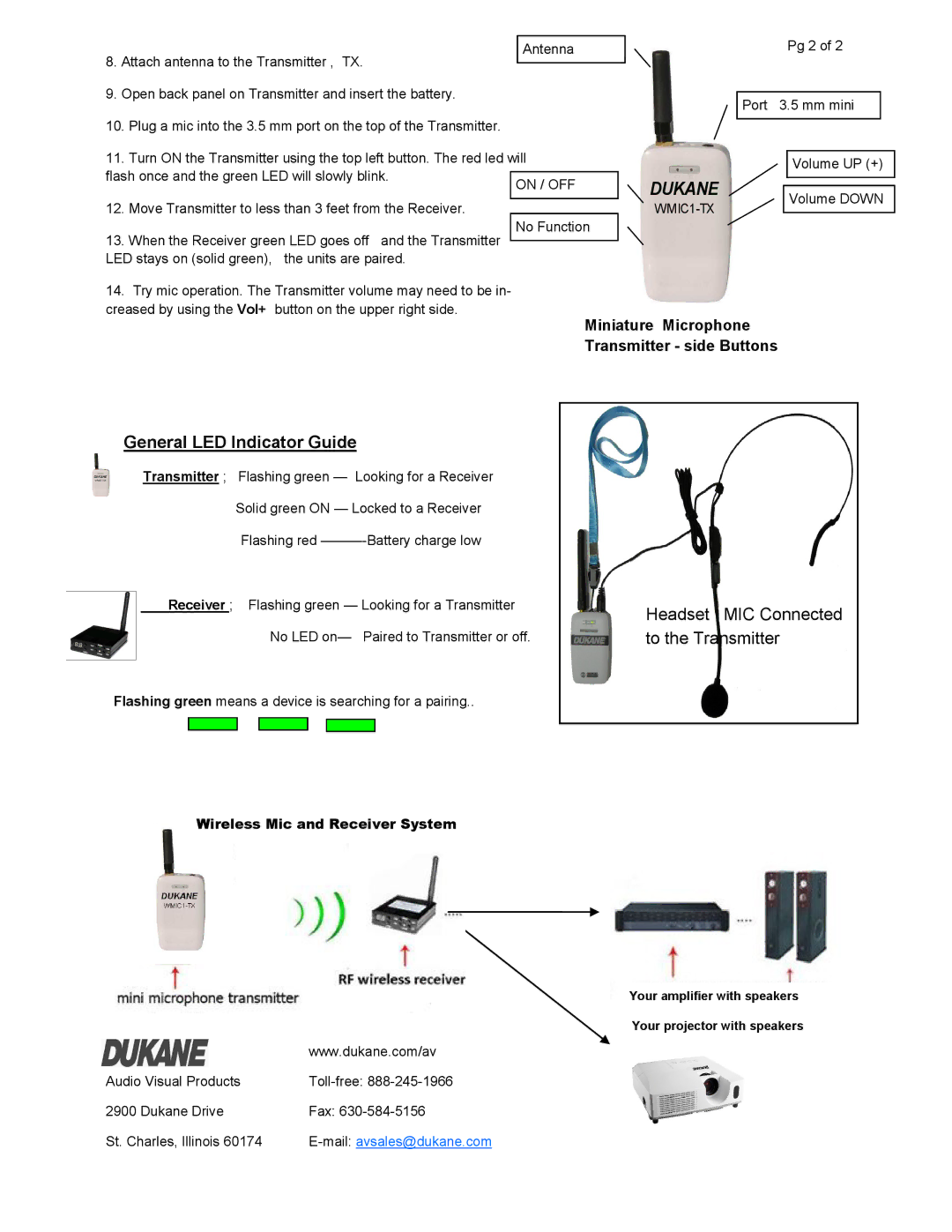WMIC1 specifications
The Dukane WMIC1 is an innovative, state-of-the-art ultrasonic welding machine designed for various industrial applications. Known for its efficiency, reliability, and precision, this machine has become a go-to solution for manufacturers seeking to enhance their production processes. The WMIC1 offers a host of features that cater to the evolving needs of modern industries.One of the main features of the Dukane WMIC1 is its advanced ultrasonic welding technology. This machine employs high-frequency ultrasonic vibrations to create a localized heat at the interface of the materials being joined. This process ensures strong, consistent welds that are critical in industries like automotive, aerospace, and medical device manufacturing. The ability to weld a variety of materials, including thermoplastics and some metals, expands its applicability across different sectors.
A standout feature of the WMIC1 is its robust control system. The machine is equipped with a digital touch screen interface that allows operators to easily monitor and adjust parameters such as frequency, amplitude, and welding time. This user-friendly design minimizes the learning curve for new operators and enhances productivity on the shop floor. Additionally, the system provides real-time feedback, which is vital for maintaining quality control during the manufacturing process.
The Dukane WMIC1 also incorporates innovative technologies that contribute to its superior performance. Its quick change tooling system allows for swift adjustments, enabling operators to switch between different welding setups without significant downtime. This feature is particularly advantageous for companies that handle diverse product lines, as it enhances flexibility and responsiveness to market demands.
Moreover, the machine boasts a compact, lightweight design that allows for easy integration into existing production lines. Its small footprint does not compromise its capabilities, making it an ideal choice for facilities with limited space. The WMIC1 also emphasizes energy efficiency, reducing operational costs while maintaining high output levels.
In terms of safety, the WMIC1 adheres to rigorous industry standards, ensuring a secure working environment for operators. Features like automatic shutdown in the event of a malfunction and protective enclosures underscore Dukane's commitment to safety in the workplace.
In conclusion, the Dukane WMIC1 ultrasonic welding machine is a powerful tool that offers a blend of advanced technology, user-friendly controls, and efficient operation. It meets the demands of various industries, making it an invaluable asset for manufacturers looking to improve their welding processes and product quality.

